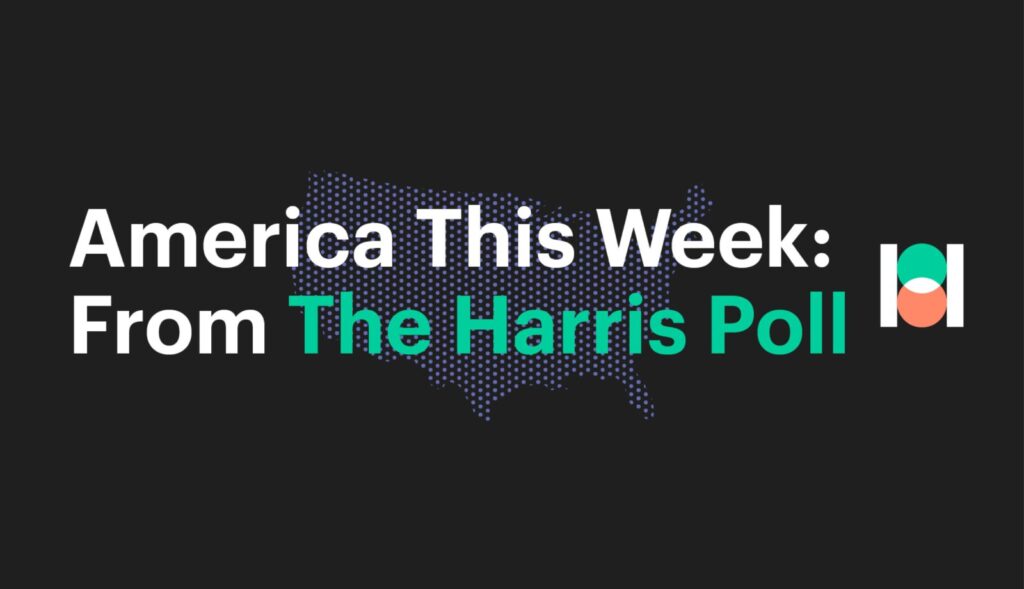Brief • 5 min Read

As Earth Day approaches, some brands are ramping up campaigns to engage with sustainability-minded consumers. In a recent survey on behalf of Adweek, The Harris Poll found that, on the whole, American consumers are ambivalent about brands’ role in sustainability and environmentalism.
Only 20% say it’s important that brands advertise around Earth Day. And only 37% say it’s important that brands and companies make environmentally conscious decisions (e.g., reducing carbon footprint, supporting environmentally friendly causes).
Earth Day does, however, have a significant impact on younger consumers, especially Gen Zers. One-third (33%) of Gen Zers say that Earth Day campaigns have led them to make more environmentally conscious decisions, and 32% of millennials say the same.
Although older consumers are more likely to report environmentally conscious behaviors in everyday life — such as recycling, shopping with sustainable brands and carpooling — Earth Day itself doesn’t have much of an influence on their behaviors. Forty-seven percent of baby boomers say they try to make environmentally conscious decisions in daily life (compared to 40% of Gen Zers and 37% of millennials), only 10% say started making such decisions because of Earth Day campaigns.
Framing matters for Earth Day campaigns
For brands that do elect for sustainability-focused campaigns around Earth Day, they must be mindful in how they frame these issues to consumers. The survey found that consumers react better to Earth Day ads that embrace positivity and action than they do to ads that take a somber approach to the climate crisis.
Ads that talk about taking reactive measures to protect the environment (e.g., planting trees, picking up litter) were the most likely to change consumers’ opinions for the better: 60% said they would have a better opinion of a brand that took this approach. While ads that talk about the negative impacts of human behavior on the environment were the least likely to change consumer opinion of the brand for the better: only 44% said they would have a better opinion of a brand that took this approach.
And when it comes to consumers’ purchase decisions, a similar trend emerged — consumers were motivated more by positivity and action than by ads that highlighted the detrimental effects of human activity on the environment. Ads that talk about taking preventive measures to protect the environment (e.g., recycling, buying eco-friendly appliances, using public transportation) would make consumers most likely to buy: 55% said they would be more likely to buy from these brands. While ads that talk about the negative impacts of human behavior on the environment were the least likely to drive a purchase: only 41% said they would be more likely to buy from these brands.
Earth Day campaigns drive sales, but brands with a clear tie-in see a bigger boost
Almost half (48%) of consumers who’ve seen an Earth Day campaign in the past two years (2019-2021) say they’ve purchased from a brand because of it. They’re most likely to hear about them on social media or cable TV. And 55% of consumers who remember seeing such an ad saw it on social, and 47% saw it on cable TV.
The Earth Day theme seems to work best as a revenue driver for brands who have a natural tie-in to the event, such as NatGeo and Discovery+. Campaigns from alcohol brands, for example, were less likely to drive consumers to purchase.
American consumers said they would be most likely to purchase from CVS (65%), Discovery+ (55%) and The North Face (54%) if they were to see or hear an Earth Day campaign from these brands, respectively — while Earth Day communications from Bombay Sapphire (33%) and Bulleit Bourbon (32%) were the least likely to drive them to purchase.
Again, the survey found that Earth Day campaigns have a stronger influence on younger consumers, who were more likely to make a purchase after seeing such an ad than their older generational counterparts. Sixty-three percent of millennials and 57% of Gen Zers who have seen an Earth Day campaign since 2019 say they’ve bought from the brand who promoted it — compared to only 42% of Gen Xers and 24% of baby boomers.
Subscribe for more Insights
Subscribe to our newsletter for the latest trends in business, politics, culture, and more.
Download the Data
Get the full data tabs for this survey conducted online within the United States by The Harris Poll on behalf of Adweek during April 14-15, 2021, among 1,093 U.S. adults ages 18 and older with additional branding insights provided by Harris Brand Platform.
Download
Subscribe for more Insights
Subscribe to our newsletter for the latest trends in business, politics, culture, and more.
Download the Data
Get the full data tabs for this survey conducted online within the United States by The Harris Poll on behalf of Adweek during April 14-15, 2021, among 1,093 U.S. adults ages 18 and older with additional branding insights provided by Harris Brand Platform.
DownloadRelated Content








